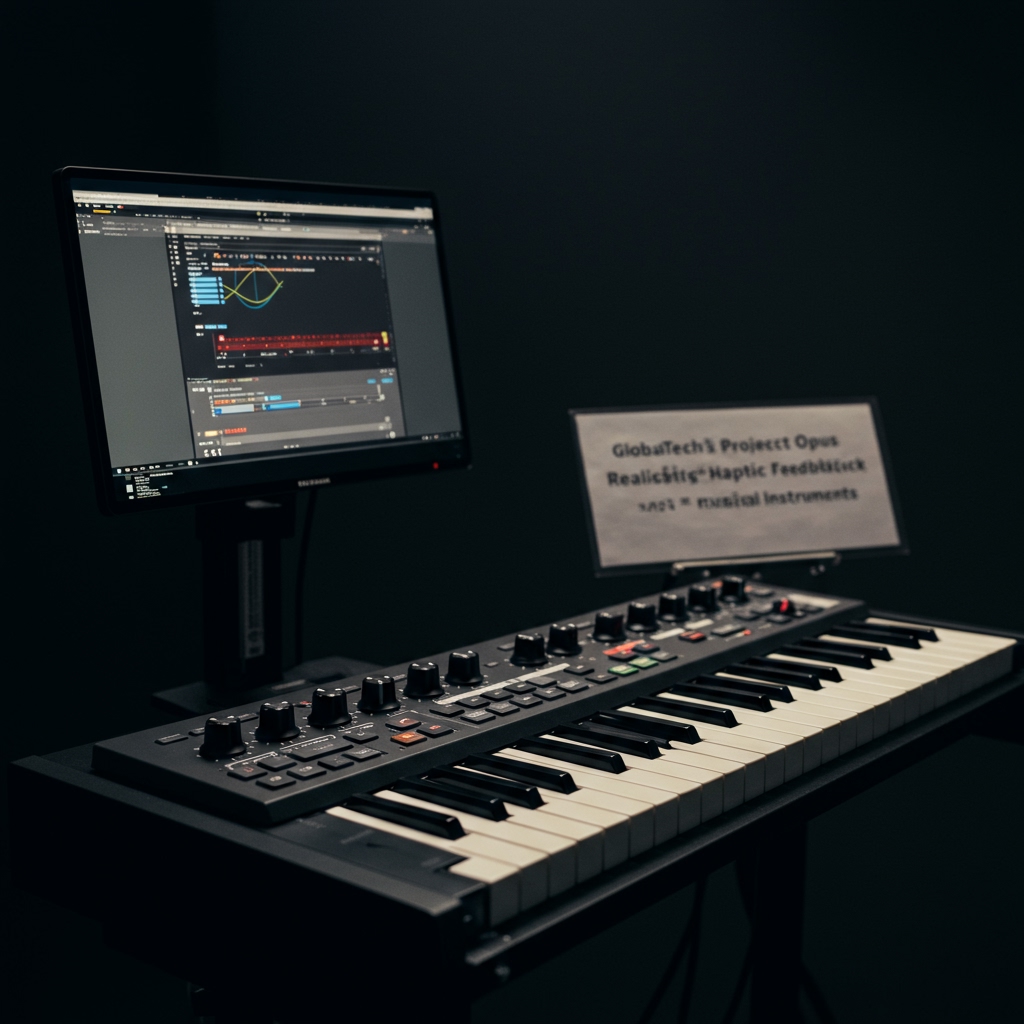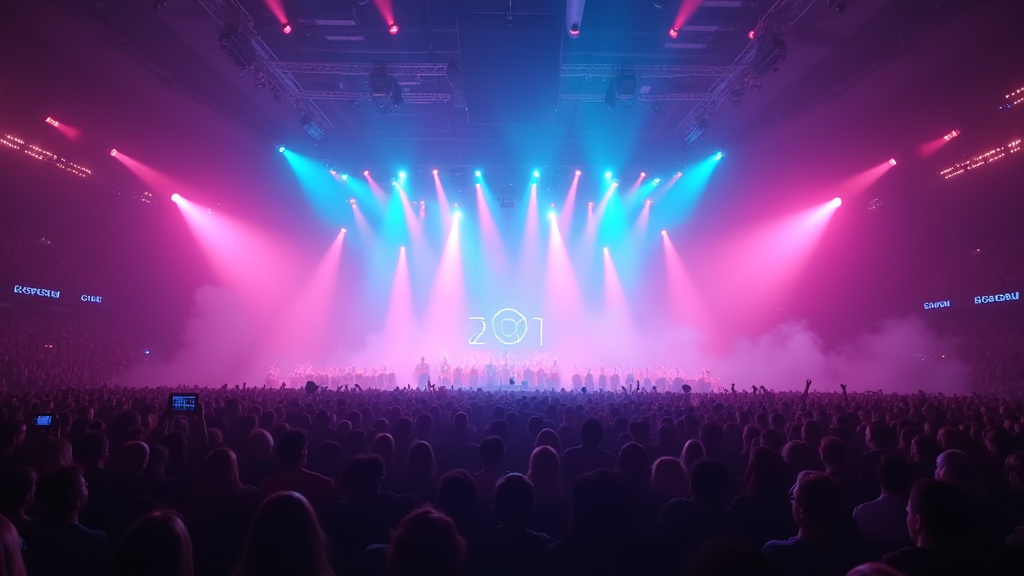GlobalTech Solutions Unveils Project Opus, a Groundbreaking Haptic System for Digital Music
San Francisco, CA – June 5, 2025 – GlobalTech Solutions, a leader in advanced technology development, today made a significant announcement that promises to redefine the landscape of digital music creation. At the prestigious Annual Tech Innovators Summit held in San Francisco, the company unveiled “Project Opus,” a revolutionary haptic feedback system meticulously engineered for use with digital musical instruments. This innovation addresses a long-standing challenge faced by musicians transitioning from traditional acoustic or electric instruments to digital platforms: the critical absence of realistic tactile feedback.
Addressing a Key Challenge in Digital Music Production
For decades, digital musical instruments, such as MIDI controllers, digital pianos, electronic drum kits, and virtual instrument interfaces, have offered unparalleled versatility, portability, and sound manipulation capabilities. However, a persistent barrier to full adoption and intuitive performance has been the lack of the physical feel inherent in traditional instruments. The weight and resistance of a piano key, the tension and vibration of a guitar string, the rebound and texture of a drum pad – these tactile sensations are fundamental to a musician’s technique, expression, and connection with their instrument. Digital interfaces, while powerful, often provide only rudimentary or static feedback, limiting the depth of performance and the transfer of muscle memory developed on acoustic counterparts.
Project Opus is GlobalTech Solutions’ ambitious answer to this limitation. Developed over several years in collaboration with engineers, material scientists, and professional musicians, the system is designed to replicate the precise, nuanced tactile response of a wide array of traditional instruments directly within a digital interface. This is achieved through a sophisticated integration of cutting-edge hardware and intelligent software.
The Technology Behind Project Opus
The core of Project Opus lies in its advanced micro-actuator technology. These miniature, high-precision actuators are embedded within the keys, pads, or surfaces of compatible digital instruments. Unlike simpler vibration motors, these micro-actuators can exert variable force, resistance, and subtle textural vibrations with extreme accuracy and responsiveness. This allows the system to simulate the feel of hitting a key with escapement, plucking or bending a string, or striking a drumhead with varying force and stick type.
Complementing the hardware is a sophisticated suite of AI algorithms. These algorithms analyze input from the musician (such as velocity, pressure, and articulation) and combine it with complex physical modeling data specific to various traditional instruments. The AI dynamically controls the micro-actuators to produce real-time haptic feedback that mimics the natural physical response of the desired instrument. For instance, playing a digital piano key could feel heavier at the beginning of the press and lighten as it nears the bottom, just like a grand piano action. A digital guitar fretboard could provide feedback simulating string tension and vibration upon ‘plucking’ via a pad or surface. The system is designed to be highly customizable, allowing musicians to fine-tune the haptic response to their specific preferences or to accurately emulate different models of traditional instruments.
Unveiling and Vision at the Summit
The unveiling of Project Opus was a highlight of the Annual Tech Innovators Summit. During her keynote address, Dr. Anya Sharma, CEO of GlobalTech Solutions, emphasized the transformative potential of the technology. “For too long,” stated Dr. Sharma, “musicians have had to compromise on the physical connection with their instruments when embracing the power of digital creation. Project Opus aims to eliminate this major barrier. By providing unprecedented realism in tactile feedback, we are not just enhancing digital instruments; we are bridging the gap between the analog and digital worlds, empowering musicians to perform, compose, and express themselves with the same intuition and feel they experience with traditional instruments.” Her remarks underscored the company’s commitment to developing technology that serves creative professionals and expands the possibilities within the digital arts.
The demonstration at the summit showcased prototypes integrated into various digital instrument formats, including a MIDI keyboard, a drum pad controller, and a unique surface designed to mimic stringed instruments. Attendees reported being genuinely impressed by the fidelity and responsiveness of the haptic feedback, noting that it significantly enhanced the sense of playing a real instrument.
Roadmap and Industry Impact
GlobalTech Solutions has outlined a clear path forward for Project Opus. Beta testing of the system is scheduled to commence in Q4 2025. This crucial phase will involve collaboration with a select group of professional artists, music educators, and prominent digital instrument manufacturers. The feedback gathered during beta testing will be vital for refining the technology and ensuring its compatibility and performance across a range of potential applications and hardware platforms.
Following successful beta testing, GlobalTech anticipates a potential commercial launch of Project Opus in early 2026. The company plans to offer the technology as a module or integrated system for licensing by digital instrument manufacturers. This strategy aims to facilitate widespread adoption and allow different manufacturers to incorporate Project Opus into their own product lines, from entry-level controllers to high-end professional studio equipment.
The introduction of Project Opus is poised to significantly impact digital music creation workflows worldwide. For musicians, it promises a more intuitive and expressive playing experience, potentially reducing the learning curve when transitioning from traditional instruments and allowing for more nuanced performances in digital environments. For manufacturers, it offers a compelling new feature that can differentiate their products in a competitive market. For educators, it could provide more realistic training tools for students learning digital music production.
Potential Future Applications
While the initial focus is on digital musical instruments (replicating feels like piano keys, guitar strings, drum pads), the underlying micro-actuator and AI-driven haptic technology developed for Project Opus holds potential applications in other fields requiring precise tactile simulation. This could include virtual reality interfaces, medical training simulators, industrial control systems, and accessibility technologies. GlobalTech Solutions indicated that while music is the primary focus now, they are exploring these possibilities for the future.
In conclusion, GlobalTech Solutions’ unveiling of Project Opus marks a significant step forward in the evolution of digital musical instruments. By solving the long-standing challenge of realistic tactile feedback, the company is setting a new standard for digital music creation, promising a future where the expressiveness and feel of traditional instruments can coexist seamlessly with the power and flexibility of the digital realm. The music industry watches keenly as the beta testing phase approaches, anticipating the arrival of this transformative technology in the market.





